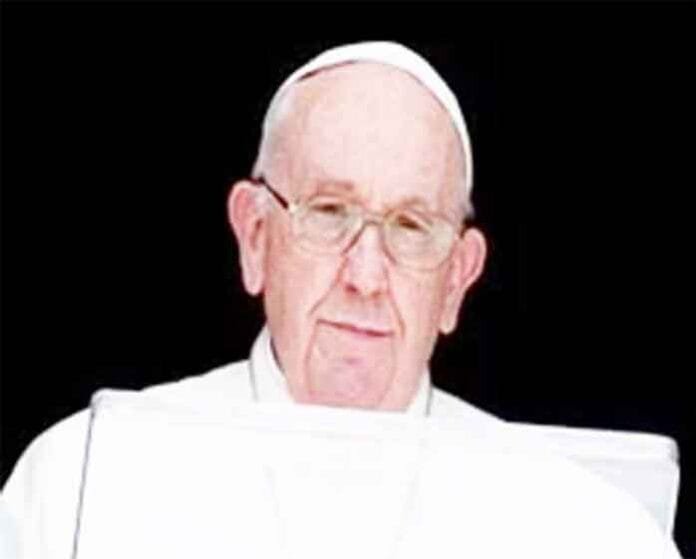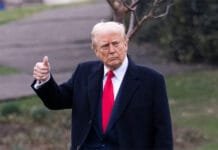INVC NEWS Vatican City — As the world closely watches the Vatican, the Roman Catholic Church stands at a historic crossroads. With the passing of Pope Francis, the process of selecting the next supreme pontiff has begun. Among the names being considered for this sacred role are three African cardinals—an unprecedented development that could lead to the appointment of the first Black Pope in over 1,500 years of Church history.
Global Spotlight on Vatican’s Papal Conclave
The Sistine Chapel in Rome will soon witness the gathering of cardinal electors in a highly confidential conclave, expected to begin next Wednesday. Behind closed doors, these cardinals will engage in intense deliberations and prayer, seeking divine guidance to select a leader who can guide the 1.3 billion-strong Roman Catholic population through the trials of the modern world. However, long before the conclave’s official start, informal consultations and discussions have already begun—and three African leaders have emerged as serious contenders.
These three “papabili”—a term used for cardinals seen as possible popes—are:
Cardinal Robert Sarah from Guinea
Cardinal Peter Turkson from Ghana
Cardinal Fridolin Ambongo from the Democratic Republic of Congo
If one of them is chosen, it would mark a radical shift in Church history, signaling inclusivity and a recognition of the Catholic Church’s vibrant growth across the African continent.
Cardinal Peter Turkson: Leading the Conversation
Among the three, Cardinal Peter Turkson stands out as a prominent and widely respected figure. At 76, he brings a lifetime of service, humility, and intellectual rigor to the table. Born to working-class parents—his father a carpenter and mine worker, and his mother a vegetable vendor—Turkson’s rise through the ranks of the Church is a testament to perseverance and spiritual dedication.
Appointed as Ghana’s first cardinal in 2003 by Pope John Paul II, Turkson later served as the head of the Vatican’s Department for Promoting Integral Human Development. His work has spanned issues such as economic justice, climate change, and conflict resolution. Despite previously stating he had no desire to become pope—citing the immense responsibility and difficulties that might accompany being the first Black Pope—Turkson remains a top choice in many Church watchers’ predictions.
Cardinal Robert Sarah: Defender of Tradition
Cardinal Robert Sarah, aged 79, is known for his staunch conservative views and deep spiritual convictions. Hailing from Guinea, he served as Prefect of the Congregation for Divine Worship and the Discipline of the Sacraments until his retirement in 2021. His writings and speeches have often emphasized the need for the Church to remain grounded in its traditional values amid modern secular pressures.
Sarah’s theological depth and command of liturgical discipline have earned him a devoted following among traditionalists. He’s also viewed as a figure who could reassert doctrinal clarity within the Church, appealing to many who seek a return to orthodoxy.
Cardinal Fridolin Ambongo: A Voice for Peace and Ecology
The youngest among the three, Cardinal Fridolin Ambongo, 64, is the Archbishop of Kinshasa and a vocal advocate for environmental protection and human rights in central Africa. With a reputation for speaking truth to power, Ambongo has criticized corrupt governments and international exploitation of African resources.
As a member of the Franciscan Order, Ambongo has been a vocal proponent of Pope Francis’s ecological and social teachings. His inclusion in the shortlist reflects the Church’s increasing concern with issues of justice, peace, and the voice of the Global South.
The Weight of History: Why This Papal Election Matters
For 1,500 years, no African cardinal has ascended to the papacy. While early Christianity had strong roots in North Africa—with figures such as St. Augustine of Hippo—subsequent centuries saw the papacy dominated by Europeans, especially Italians.
This disparity is particularly striking given that Africa is now home to some of the fastest-growing Catholic populations in the world. In countries like Nigeria, Uganda, the Congo, and Kenya, Catholicism thrives with dynamic local leadership and fervent communities. The election of a pope from Sub-Saharan Africa would not just reflect demographic realities—it would acknowledge the spiritual leadership emerging from the continent.
Racial Barriers in the Church: An Unspoken Reality
Despite the Catholic Church’s global reach, racial inequality and Eurocentrism still persist within the hierarchy. A Congolese priest, speaking anonymously to a French news agency, pointed out that “discrimination is still a reality,” even if it is rarely discussed openly. While structural progress has been made, the fact remains that the upper echelons of Vatican leadership have remained largely inaccessible to clergy from non-European backgrounds.
Should a Black cardinal be elected pope, it would signal a powerful break from this historic exclusion, potentially transforming how the Church is perceived by millions across Africa and beyond.
Papal Election Process: Secrecy, Symbolism, and Significance
The conclave’s procedures are steeped in secrecy and symbolism. Only cardinals under the age of 80 are eligible to vote. Once inside the Sistine Chapel, locked away from the outside world, the cardinals cast their votes in successive rounds until one candidate receives a two-thirds majority.
The moment of election is traditionally announced with the appearance of white smoke from the chapel chimney, followed by the Latin declaration: Habemus Papam—“We have a Pope.” The world then sees the newly elected pontiff appear on the central balcony of St. Peter’s Basilica.
While bookmakers and Vatican insiders may speculate, the process often delivers surprises. In 2013, few had predicted the election of Pope Francis, an Argentine Jesuit with a focus on humility and reform.
Challenges Facing the Next Pope
Whichever cardinal is chosen, he will face an array of global challenges:
Clerical abuse scandals that have severely damaged the Church’s credibility
Secularization in Europe and North America
Moral and doctrinal divisions within the Church hierarchy
Climate change, poverty, and migration, especially in the Global South
The need for interfaith dialogue and peacemaking in a turbulent world
In this context, selecting a Black pope with roots in the developing world could reinvigorate the Church’s mission, making it more inclusive, diverse, and attuned to contemporary social issues.
Hope, Change, and the Future of Catholicism
While African Catholics remain cautiously hopeful, there is growing recognition that a major shift is overdue. The Church’s vitality in Africa, combined with the deep spiritual wisdom of its clergy, makes a compelling case for papal leadership from the continent.
If the next pope is indeed African, it would be more than a symbolic gesture—it would be a declaration that the heart of Catholicism no longer beats solely in the Old World, but pulses vibrantly in the diverse communities of the 21st century.
As the world watches and waits for the conclave’s decision, the possibility of a Black pope is no longer unthinkable. It is real, historic, and filled with promise.
















